Product Information
-
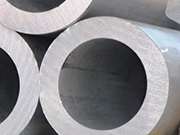
Thick wall stainless steel pipe details
Stainless steel thick-walled steel pipes refer to stainless steel pipes with a wall thickness of 10-50.0mm. Those with a wall thickness of 50mm or more are called extra-thick-walled stainless steel pipes. The manufacturing process of stainless steel thick-walled steel pipes is...Read more -
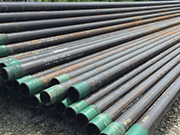
What is an oil casing
Oil casing is an important piece of equipment for oil drilling. Its main equipment also includes drill pipes, core pipes and casings, drill collars, and small-diameter drilling steel pipes. The domestic casing is made of hot-rolled or cold-drawn steel for geological drilling. ...Read more -
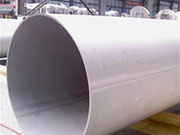
How to check the quality of large-diameter thin-walled steel pipes
1. Generally, large-diameter thin-walled steel pipes are used for the transportation of generally lower-pressure fluids such as water, gas, air, oil, and heating steam. 2. Ordinary carbon steel wire casing (GB3640-88) is a steel pipe used to protect wires in electrical install...Read more -
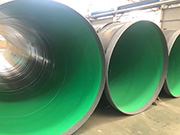
The scope of application of epoxy resin coated steel pipes
Epoxy resin-coated steel pipe coating is a thermosetting plastic that combines the common advantages of steel and plastic. Its scope of application includes 1. Fire sprinkler system and domestic water supply and drainage; 2. Gas drainage, mud transportation, and ventilation sy...Read more -
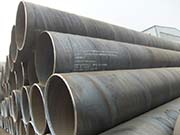
Which is better, spiral welded steel pipe or welded steel pipe
1. The materials are the same but the uses are different, so there is no question of who is better. 2. Spiral welded steel pipe refers to a steel pipe with seams on the surface, which is made by bending and deforming steel strips or steel plates into circular, square, and othe...Read more -
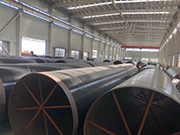
What are the insulation methods for anti-corrosion steel pipes
Anti-corrosion steel pipe is a common steel pipe. To slow down and prevent the steel pipe from corroding and depreciating under the chemical and electrochemical effects of internal and external media, or due to the metabolism of microorganisms, it is necessary to do a good job...Read more -
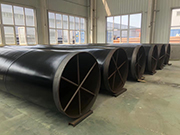
Three common connection methods for 3PE anti-corrosion steel pipes
(1) Welding connection: If there is no need to disassemble, you can choose welding. This is a more traditional connection method. It has a simple structure and can directly connect components of any form. It is economical to use materials and does not weaken the cross-section....Read more -
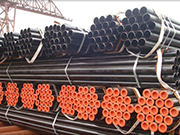
The difference between cold-drawn steel pipe and hot-rolled steel pipe
The difference between hot processing and cold processing is: that hot rolling is hot processing, and cold drawing is cold processing. The main difference is: that hot rolling is rolling above the recrystallization temperature, cold rolling is rolling below the recrystallizati...Read more -
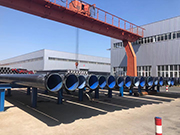
Preparation work before connecting plastic-coated steel pipes
The plastic-coated steel pipe is composed of a core layer, a fastening steel strip, an air layer, a heat insulation layer, a reflective layer, a sliding bracket, an outer protective steel pipe, sprayed polyurethane, and entangled fiberglass. It has high strength, is not easily...Read more

